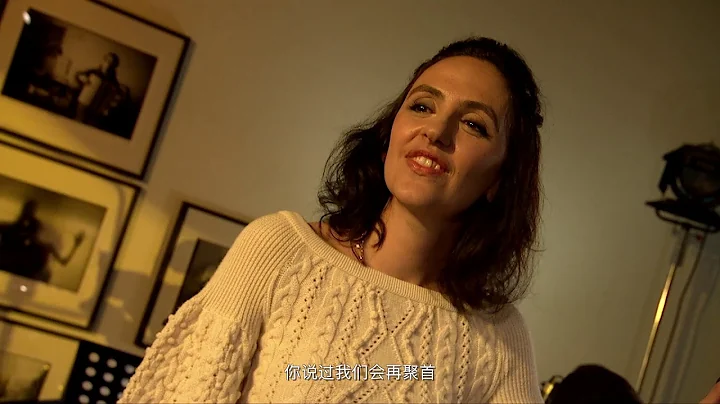"If you take a hundred steps after a meal, you will live to be ninety-nine"
Everyone may not know the true meaning of "If you take a hundred steps after a meal, you will live to ninety-nine". It is very likely that everyone has some misunderstandings about this ancient saying.

100 steps only takes a few minutes to walk. It usually takes one or two minutes to complete. Is this one or two minutes of exercise useful? Many people will say that this is a function word, not a specific numerical value, so why not say ten steps or a thousand steps? Is taking a brisk walk after a meal good for your health?
"A Hundred Steps Walk after Meal" is most suitable for those who work at their desks for a long time, are fat, or have excessive gastric acid . As long as you walk for twenty or thirty minutes, it can promote gastrointestinal peristalsis, secretion of digestive juices, and digestion and absorption of food.
Which of the three meals a day does "after a meal" refer to? You have to go to work after breakfast, and you also have to participate in necessary activities after lunch, so it should refer to after dinner. Walking half an hour after dinner is relaxing and good for the body.
When should I leave after a meal?
Generally speaking, the habit of putting down your chopsticks and walking away is not advisable. Because the food eaten needs to stay in the stomach for a period of time and mix with gastric juices that help digestion and absorption. Standing up and walking immediately after eating will undoubtedly add a lot of stress factors to the stomach and disrupt the balance.
Therefore, recommends resting for 20 to 30 minutes after a meal before starting a walk.
How should I walk after a meal?
The digestion and absorption process of the gastrointestinal tract requires sufficient blood supply. Excessive exercise will increase blood circulation in muscle tissue, and the blood will be shunted to other parts of the body, which will affect the absorption of nutrients. The correct way to move can be described as "taking a leisurely stroll" . Relaxation and leisurely are better.
How much should you walk after a meal?
Depending on each person’s physical condition, the time for walking around after a meal can be 15 to 30 minutes. People who are frail and elderly can walk less; people who lack exercise, are overweight, have indigestion, and have poor appetite can walk more.
Walking after meals is different from physical exercise and aerobic exercise. It can bring people a relaxed and happy mood and proper gastrointestinal health care. It is a good habit for a healthy life.
Precautions for "walking a hundred steps" after meals
1. People suffering from gastroptosis : It is best to move less after meals, and do not stand for a long time. You can sit down or lie down for a while before moving.
2. People suffering from coronary heart disease and angina pectoris : Performing heavy exercise immediately after eating may induce angina pectoris or even myocardial infarction. It is best to take a walk one hour after a meal, half an hour each time, and be careful not to walk too fast.
3. People suffering from hypertension, cerebral arteriosclerosis, diabetes : It is best to sit quietly with your eyes closed for 10 to 30 minutes before taking a walk after a meal. Walking immediately is prone to postural hypotension, leading to dizziness and fatigue. Even fainting. It is best for patients with high blood pressure to keep their upper body straight when walking, otherwise it may compress the chest and affect heart function. It is best to walk with your front feet on the ground, not your back heels first. Otherwise, your brain will be in constant vibration, which can easily cause transient dizziness.
4. People suffering from chronic active gastritis and peptic ulcer: Walking immediately after a meal will increase gastrointestinal motility, and the food eaten will irritate the stomach wall, which is not conducive to gastric mucosa repair.
5. People suffering from anemia and hypotension: A large amount of blood is supplied to the stomach after meals. When walking, it is easy to cause relative ischemia of the brain, causing dizziness, dizziness, and even fainting. Generally speaking, this kind of people can choose to get up early and take a walk.
6. Elderly people: It is not advisable to walk for a hundred steps after a meal. Because the digestive function of the elderly is relatively poor, a large amount of food is concentrated in the gastrointestinal tract after a meal, and more blood is needed to help digestion. If you immediately walk a hundred steps at this time, part of the blood will be transported to the muscles of the lower limbs. , the gastrointestinal blood supply will be significantly reduced, affecting the digestion and absorption of food.

The blood pressure of the elderly generally tends to drop after meals. Walking for a hundred steps will increase the load on the heart, resulting in insufficient blood supply to the heart and brain. They are prone to dizziness, vertigo, fatigue, numbness of the limbs, and even sudden fainting. Falling is very dangerous. Therefore, for the elderly, it is best to sit down and rest quietly after meals.
✓Health knowledge "focus"
Many people like to walk while clapping or tapping certain parts of the body with their hands. This is the right thing to do. Especially for office workers who sit in the office every day and cannot stretch their muscles and bones, you should take a walk after dinner to exercise your whole body. Shake your hands back and forth to pat your torso and arms, which can help activate your Qi and avoid prolonged sitting. All kinds of harm come.
Paida walking is a traditional health care method, which can relax muscles, relieve tension and eliminate fatigue. When walking, use your arms to swing naturally and tap the shoulders, chest, abdomen, waist, back and other parts with your arms with appropriate intensity, which can play the role of massaging acupuncture points.
Content source: Human Health WeChat public account
Compiled and edited by: Journal of Integrated Traditional Chinese and Western Medicine Nursing
Correspondents: Li Xin, Sun Lei, Qin Shasha, Wang Jingjing, Dong Wei




















![【华晨宇】音乐鬼才华晨宇狂飙海豚音 “是谁”八连冠名中华小曲库《王牌对王牌4》精选特辑[浙江卫视官方HD] - DayDayNews](https://i.ytimg.com/vi/F3Yn9qepF_k/hq720.jpg?sqp=-oaymwEcCNAFEJQDSFXyq4qpAw4IARUAAIhCGAFwAcABBg==&rs=AOn4CLBM_oCv9V-vmcQuVwgVKTXnuv8vgA)
![[Eng/Pinyin Lyrics] 肖战 Xiao Zhan & 那英 Na Ying '被风吹过的夏天 / Summer Breeze / Summer the Wind Blew Past' - DayDayNews](https://i.ytimg.com/vi/IbXyIXZYe3M/hqdefault.jpg?sqp=-oaymwEcCOADEI4CSFXyq4qpAw4IARUAAIhCGAFwAcABBg==&rs=AOn4CLDphC5yRB3PirXoySldfCWFWa8_tg)